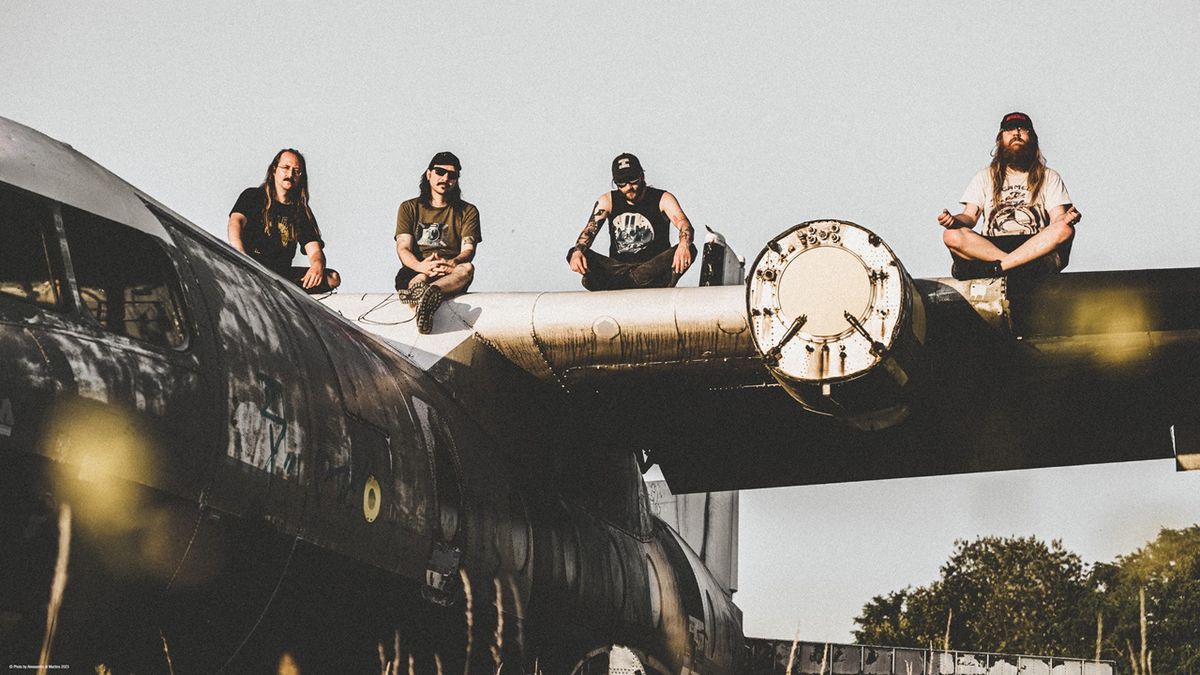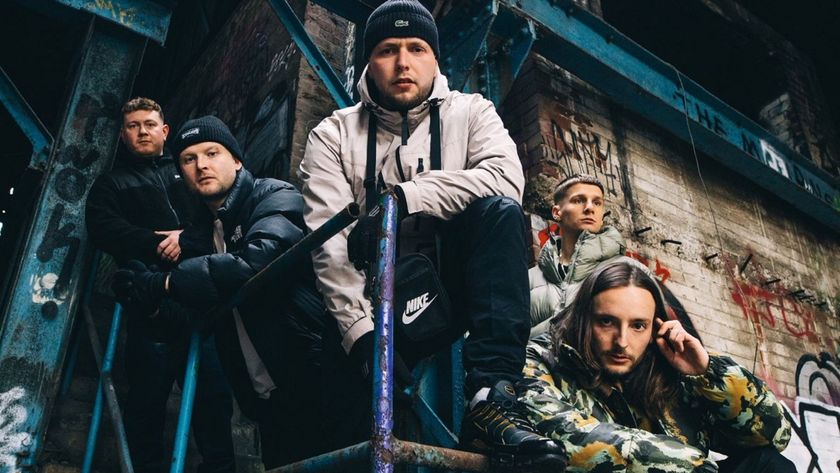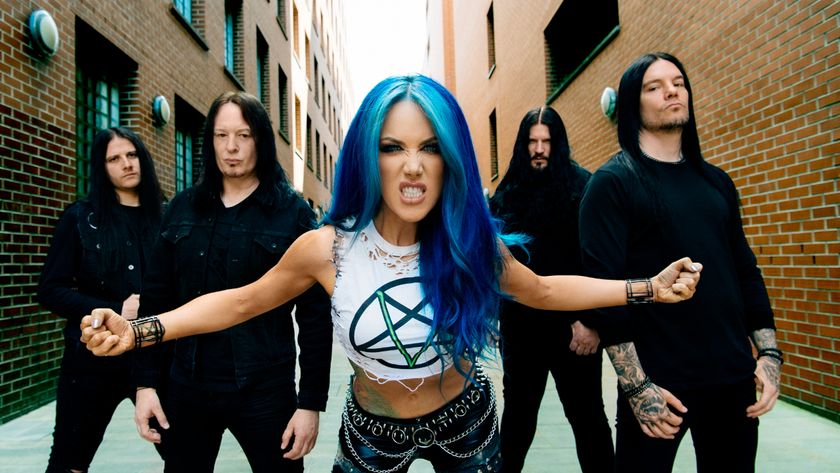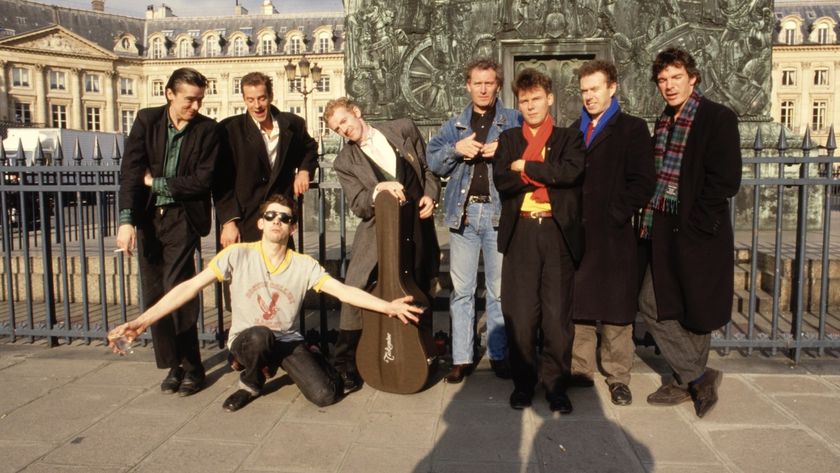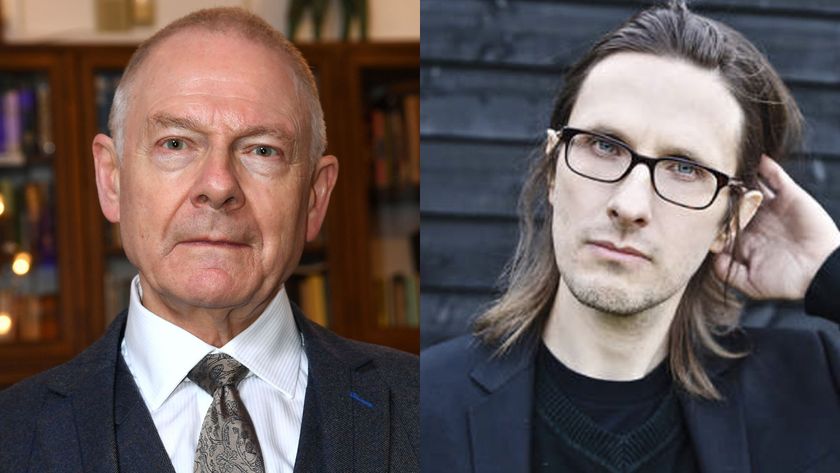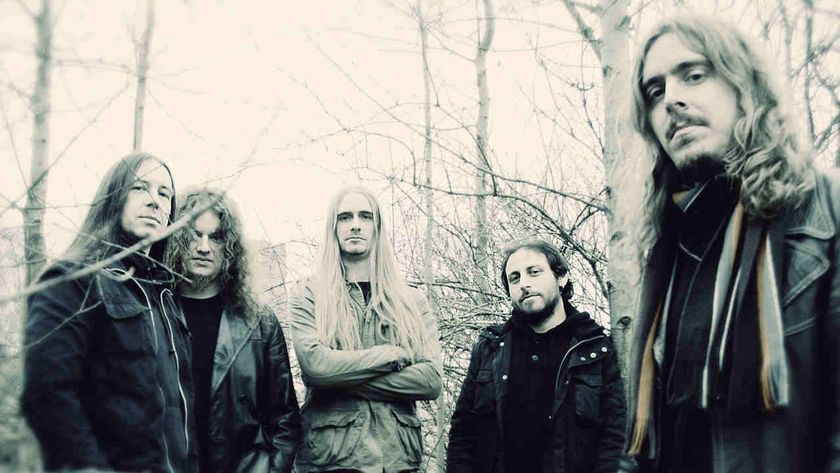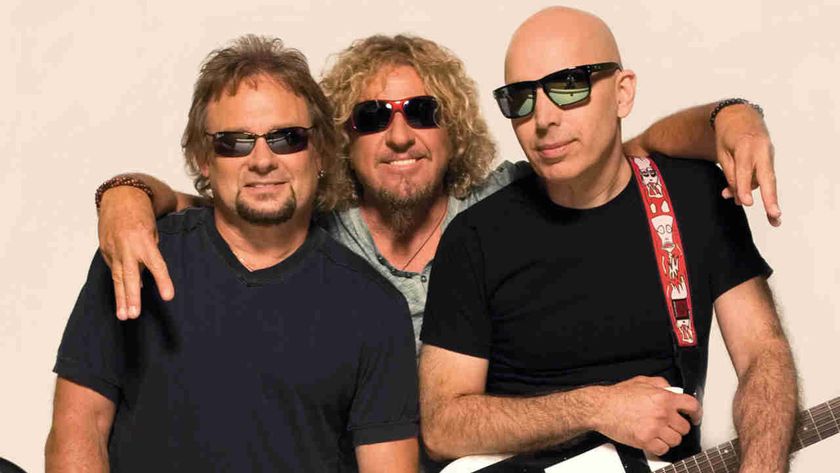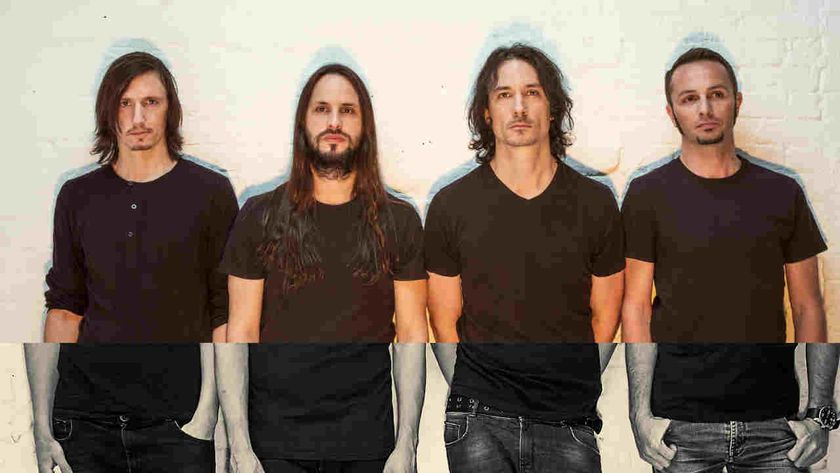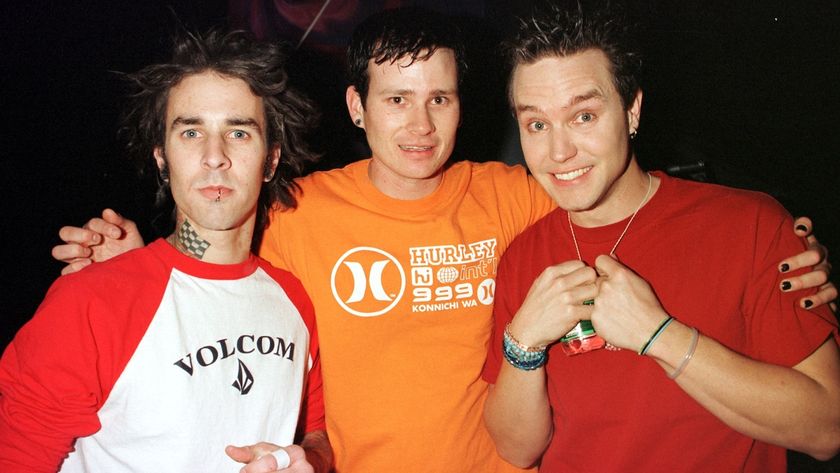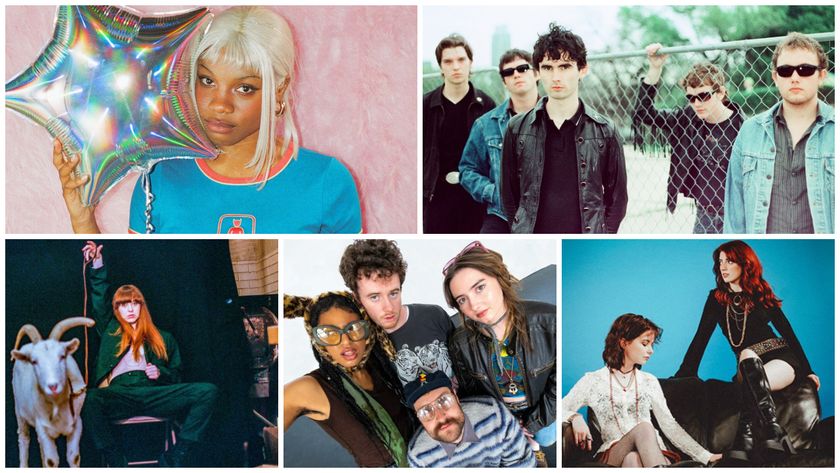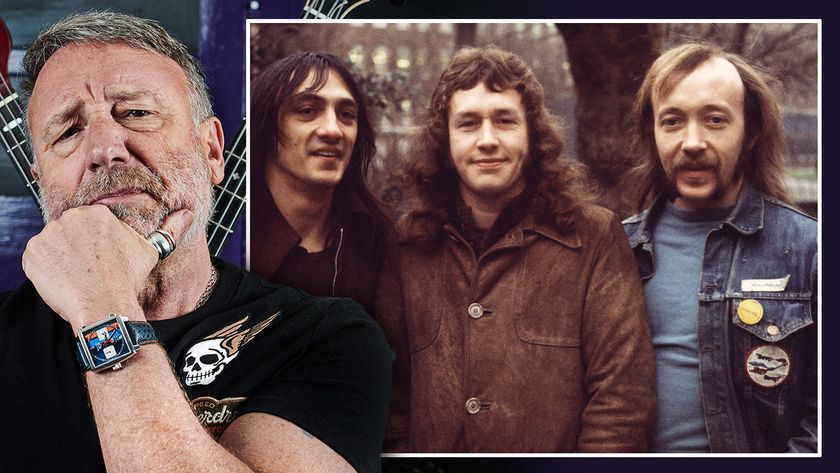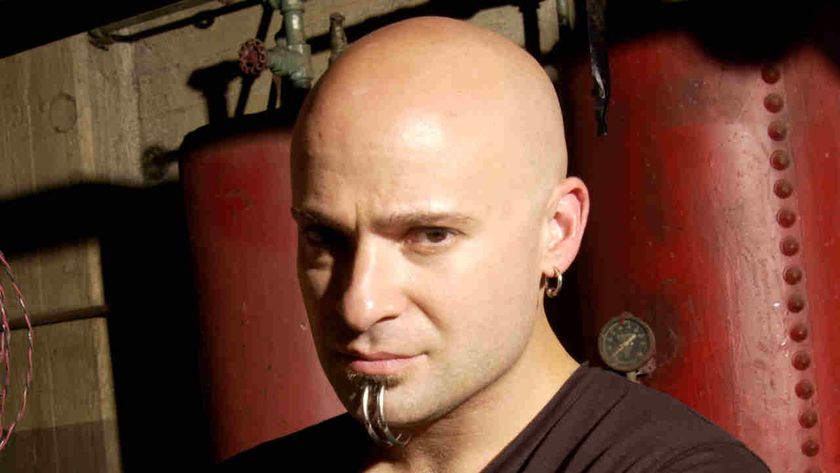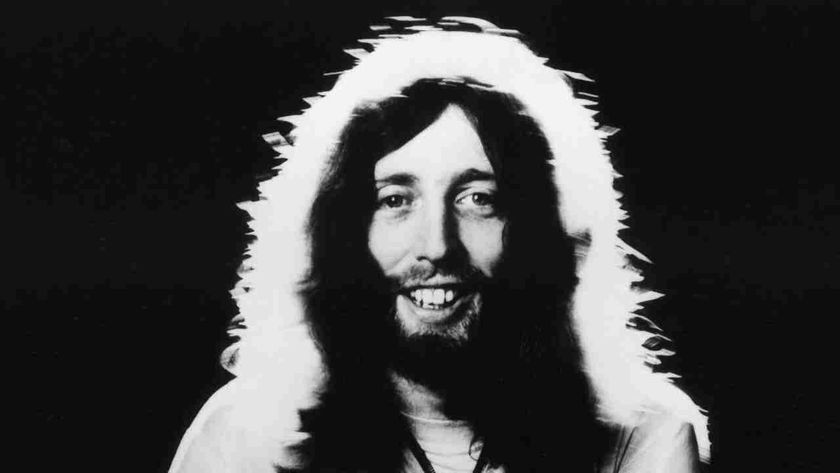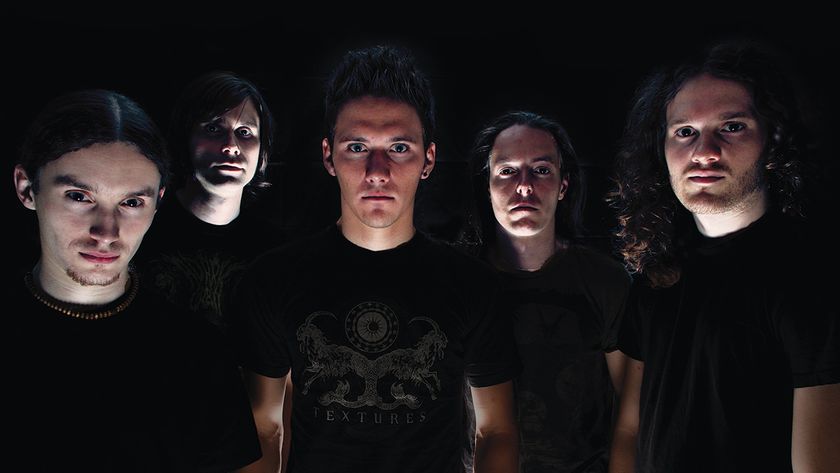Blood Incantation were loading their equipment into Berlin’s fabled Hansa Studios to record their fourth album, Absolute Elsewhere, when they were mistaken for Depeche Mode.
“There were seven or eight people outside the studio, taking pictures,” says Paul Riedl, singer and guitarist with the Denver genre-splicers. “We roll up with all our gear, and they say, ‘Are you Depeche Mode?’ We’re like, ‘No, we’re clearly not.’ That didn’t stop them trying to sneak into the foyer with us.”
If we’re being generous, there’s a grain of logic to that thinking. The British synth-pop icons recorded some of their classic 80s albums at Hansa, and the German capital has had a love affair with them ever since.
Blood Incantation landed in Berlin in the middle of Depeche Mode Week, a city-wide celebration of the band. QED ‘Musicians at Hansa’ must mean ‘Depeche Mode’ to any of the latter’s fanatical followers. In other respects… well, no one is going to confuse any member of Blood Incantation for Dave Gahan, let’s put it like that. Still, the fact that Blood Incantation – Paul plus guitarist Morris Kolontyrsky, bassist Jeff Barrett and drummer Isaac Faulk – were even recording at Hansa is a marker of their intention.
This grand old studio, which used to look directly out onto the Berlin Wall during the bad old days of the Cold War, has been a hub of creativity and experimentation for everyone from David Bowie (who recorded 1977’s majestic Heroes album here) to 70s German synth pioneers Tangerine Dream, an acknowledged influence on Blood Incantation.
It’s tempting to say some of that magic rubbed off on Paul and his bandmates, but it was there long before they touched down in Germany. Their first two albums, 2016’s Starspawn and 2019’s Hidden History Of The Human Race, were the sound of a death metal band looking towards the stars – cosmically inclined, but still gnarly and earthbound.
2022’s Timewave Zero was something else entirely. Darkly ambient and wholly electronic, this was what happens when metal dispenses with boundaries. 2024’s Absolute Elsewhere veered off on a completely different, though no less groundbreaking path.
It found Blood Incantation taking their wild and disparate influences – death metal, sure, but also prog, psychedelia, 70s kosmische music, vintage electronica, Pink Floyd – and shaping them into something wholly new. It’s the most radical metal album since Celtic Frost’s visionary avant garde masterpiece Into The Pandemonium, 37 years ago.
"We didn’t want to make a ‘good’ record,” says Paul. “Every 10 or 15 years, a band will drop a record that really does change how other people do things. We wanted to make something that moved the needle.”
If Paul Riedl wasn’t the singer in Blood Incantation, he’d make a great philosophy lecturer. He’s got the vibe: high-domed forehead, soup-strainer moustache, metaphorical if not literal turtleneck sweater. He’s definitely got the knowledge.
Our 90-minute conversation takes in everything from occultists such as H.P. Blavatsky and Aleister Crowley to the links between animal welfare and humanity’s fear of extraterrestrial life (“We’re afraid aliens will treat humans like humans treat every other animal on this planet”). That deep thought-well is evident throughout Absolute Elsewhere's protean, cosmic-psychedelicprogressive-death metal wanderings.
The album is divided into two pieces: the 20-minute The Stargate and the equally hefty The Message. Both shift kaleidoscopically between sounds and styles, raining down blastbeats and growls one minute, laying on Mellotron atmospherics or a moment of Pink Floyd-esque bliss the next.
In typically maverick Blood Incantation fashion, The Stargate was dropped in its entirety as a single, complete with an epically trippy video involving medieval knights, bleeding eyes and wormholes. Absolute Elsewhere began life in the band’s hometown of Denver, Colorado in 2023, when they cleared everything else out of their minds to focus on making, in Paul’s words, “what needed to be our best album by a landslide”.
Like previous Blood Incantation albums, Absolute Elsewhere was made with the help of the Oblique Strategies system, a set of 100-plus cards featuring various aphorisms and gnomic advice designed by former Roxy Music keyboard player turned experimental music boffin Brian Eno as an aid to shaking up creativity.
“You just pull a card and it will say something like ‘Great work moves from a still point’, which is another way of saying, ‘Just relax,’” explains Paul of the Oblique Strategies method. “They’re not rules, they just help you think in a more left-brain way.”
That left-brain thinking extends to the album’s underlying theme. It’s tempting to approach Absolute Elsewhere as a concept album, but that’s not strictly true. “The band itself is more so the concept,” says Paul. “The Stargate is more or less the ultimate Blood Incantation song, drawing from all of our pre-existing aesthetics, whereas the B-side is total, unfettered freerange, like us going wherever we want.”
The influence of psychedelia hangs over Absolute Elsewhere, musically and otherwise, even if Paul says he doesn’t do many psychedelic drugs these days. “We’ve played shows on mushrooms in the past, and we’ll trip at practise occasionally – microdose and stuff. But 15 years ago, I’d spend weeks on end on acid. I no longer need to trip to access that mindset. I’m still so spaced out, I can just think about it and I’m there.”
Before they even entered Hansa, Blood Incantation spent 10 days living and rehearsing in Berlin, soaking up the city’s atmospheres, its creative history, and in some cases, its venerated techno scene.
“The other guys wanted to go out and take ecstasy and stay out until five in the morning,” says Paul. “Not me so much. I’m not super into the whole dance music scene.”
Paul and Morris would hang out in a bar near the place they were staying at named Kumpelnest 3000. A former brothel, it still carried the whiff of its old decadence.
“We’d go on a Monday or Tuesday night, nobody there, and drink Pilsner – just us and a couple of guys at the end of the bar with the DJ playing a cassette mix tape,” says Paul. “And then Thursday through Sunday, it was these huge, crazy parties, pumping house music, everybody dancing nuts to butts. We’re like, ‘Holy shit, we’ve got to get out of here! Ha ha ha!’”
Berlin’s famous nightlife may have been memorable, but Blood Incantation were there to make an album. Founded in 1962 in the former West Berlin, Hansa is as much a Cold War time capsule as it is a legendary studio: everything from the wallpaper to the tiny old-school elevator that reeked of decades-old cigarette smoke evoked a different era.
The list of bands who have recorded at Hansa over the years is long and illustrious: not just David Bowie and Depeche Mode, but U2, Iggy Pop, Killing Joke, Siouxsie And The Banshees, Nick Cave & The Bad Seeds, Celtic Frost (admittedly the ill-fated album Cold Lake) and, more recently, Kreator, whose Hate Über Alles record was produced at Hansa by Arthur Rizk, who also worked on Absolute Elsewhere.
“You’re not just walking in big shoes,” says Paul. “Being there humanises these people. There are couches there that are the ones Depeche Mode or David Bowie would sit on. Or you find yourself standing in a doorway where David Bowie would smoke cigarettes – you know, because there are photos of it. It demystifies their ambition, and it makes you realise that you are on the same path. They did all these great things, so why can’t you?”
Blood Incantation have indeed done great things with Absolute Elsewhere, showing just how freethinking and wide-ranging the genre can be. Any band operating in the extreme metal field who dares step out of its proscribed boundaries faces the wrath of the internet’s seethingly impotent gatekeepers, yet Blood Incantation seem to have dodged the ire of all but the most dug-in death metal troglodyte.
Maybe their synapse-frying ambition has short-circuited the lone brain cell these online bottom-feeders share between them. Or maybe Blood Incantation have made a copperbottomed, boundaryless classic in Absolute Elsewhere.
“Part of the reason we started Blood Incantation was never just to be some cool death metal band,” says Paul. “We want to be a band who don’t exist in any genre.”
The beyond-the-box ambition that drives Blood Incantation isn’t just confined to the studio. This year’s Roadburn festival saw them performing two sets: a ‘traditional’ metal one and one featuring Timewave Zero in its entirety amid a laser show that called back to Pink Floyd.
At a launch gig for Absolute Elsewhere in Boulder, Colorado, they were joined by venerated electronic composer Steve Roach. As devotees of rock’n’roll history, Blood Incantation know the weight carried by gigs in meaningful and mystical locations: Pink Floyd playing in the ruins of Pompeii in the early 70s, US flautist Paul Horn recording inside the King’s Chamber of the Great Pyramid Of Giza, French keyboard wizard Jean-Michel Jarre performing in the Forbidden City in Beijing, China.
“We want to play every one of those places,” says Paul, adding a few of his own: “Machu Picchu [in Peru], Puma Punku [ancient ruins in Bolivia]… we want to go beyond the confines of what’s expected from us.”
All that’s on the far horizon for now. What’s closer is another album, the soundtrack to All Gates Open, the documentary that charts their time recording Absolute Elsewhere at Hansa.
Like the latter record, the All Gates Open soundtrack is shaping up to be another sharp left turn in a career made up of sharp left turns.
“It’s New Age ambient world music that is like the light side of the coin to Timewave Zero,” explains Paul. “It’s very different, but it’s still Blood Incantation.”
Just what ‘still Blood Incantation’ actually means is definitely open to interpretation: Is it death metal? Is it psychedelia? Is it blackened ambient-jazz blackgaze? All of these and more, or none at all. There’s a whole universe out there, and it feels like Blood Incantation have only just started to explore it.
